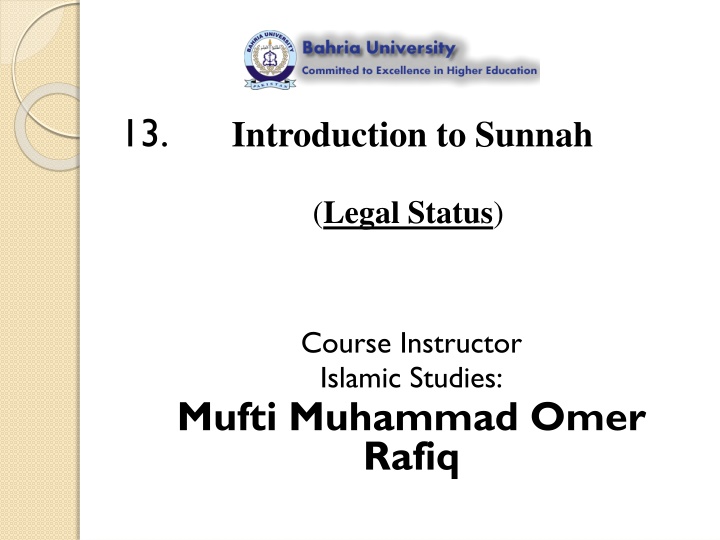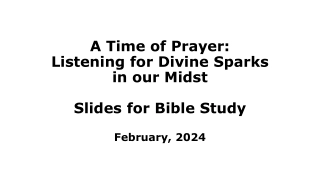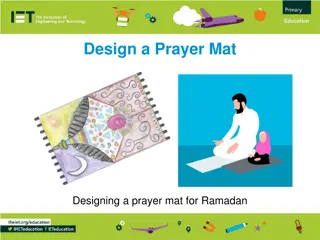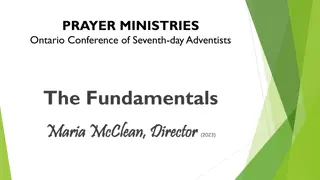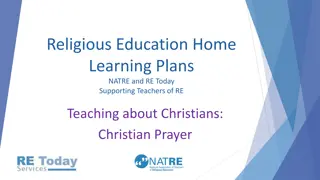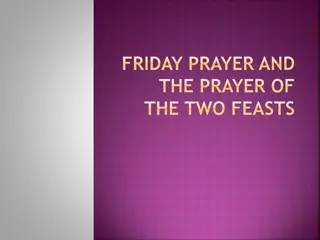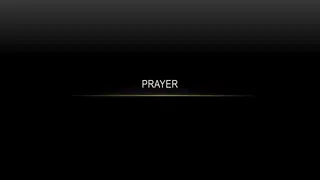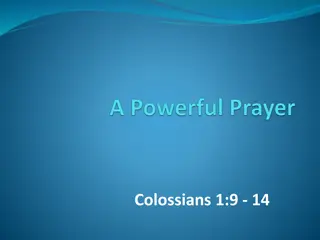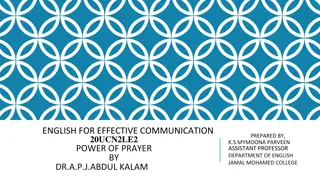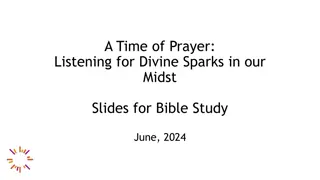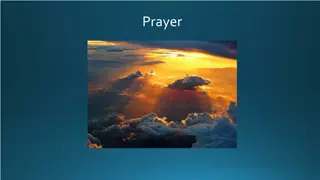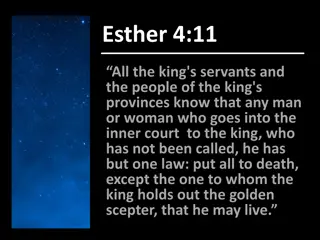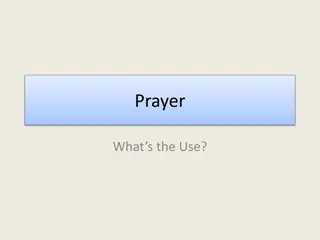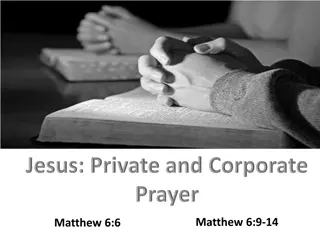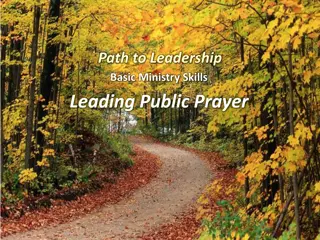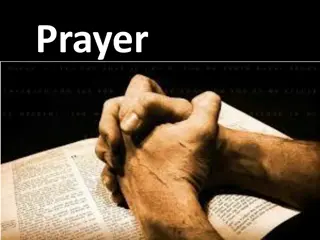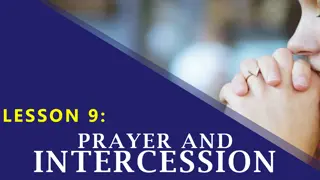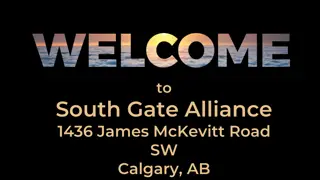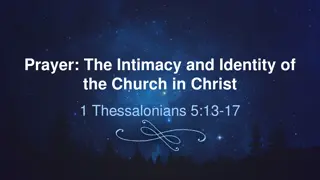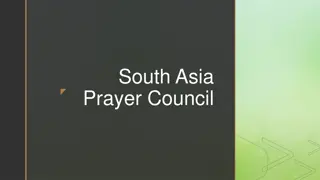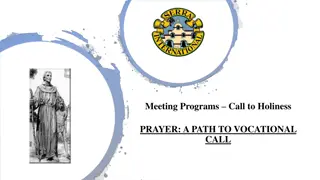A Time of Prayer: Divine Sparks & Great Commission
Engage in a Bible study centered around prayer, divine sparks, the Great Commission, and reflections on Matthew 28:16-20. Explore the call to make disciples of all nations, seeking guidance and empowerment in fulfilling this sacred mission.
Download Presentation

Please find below an Image/Link to download the presentation.
The content on the website is provided AS IS for your information and personal use only. It may not be sold, licensed, or shared on other websites without obtaining consent from the author.If you encounter any issues during the download, it is possible that the publisher has removed the file from their server.
You are allowed to download the files provided on this website for personal or commercial use, subject to the condition that they are used lawfully. All files are the property of their respective owners.
The content on the website is provided AS IS for your information and personal use only. It may not be sold, licensed, or shared on other websites without obtaining consent from the author.
E N D
Presentation Transcript
13. Introduction to Sunnah (Legal Status) Course Instructor Islamic Studies: Mufti Muhammad Omer Rafiq
DIFFERENCE BETWEEN HADITH AND SUNNAH: SUNNAH HADITH a) Every saying of Holy Prophet. b) Record of sunnah, prophetical and historical elements. c) Khabar or information. d) Every hadith is piece of information but every information is not hadith. a) Every deed or doing of Holy Prophet. b) Unspoken approval of Holy Prophet(SAW). c) Customs, methods and ways of Holy Prophet SAW. d) Religious and spiritual color.
Legal Position of Sunnah The Sunnah cannot dispense with the Quran: Allah Almighty chose Muhammad , as His Prophet and selected him to deliver His final message. The Quran was revealed to the Prophet in which Allah commanded him to obey everything that was ordered of him; that is, to convey and explain His message to the people. Allah Almighty says what means: " And We revealed to you the message [i.e., the Quran] that you may make clear to the people what was sent down to them " [Quran: 16:44] The declaration mentioned in the verse contains two commands: 1. To propagate the speech of Allah (i.e. the Quran). This is to openly communicate the Quran to (all) mankind as Allah Almighty has revealed to the Prophet that which means: "O Messenger! Announce that which has been revealed to you from your Lord " [Quran: 5:67]
Aaishah is reported to have said: "Whoever says that Muhammad concealed anything that he was commanded to communicate has forged a great lie against Allah." Then she read the abovementioned verse. [Al-Bukhari & Muslim] Another narration is found in the book of Imaam Muslim which states: "If the Messenger of Allah had concealed something that he was commanded to communicate, he would have concealed the saying of the Almighty (which means): "And [remember, O Muhammad], when you said to the one on whom Allah bestowed favour: 'Keep your wife and fear Allah,' while you concealed within yourself that which Allah is to disclose. And you feared the people, while Allah has more right that you fear Him." [Quran: 33:37]
